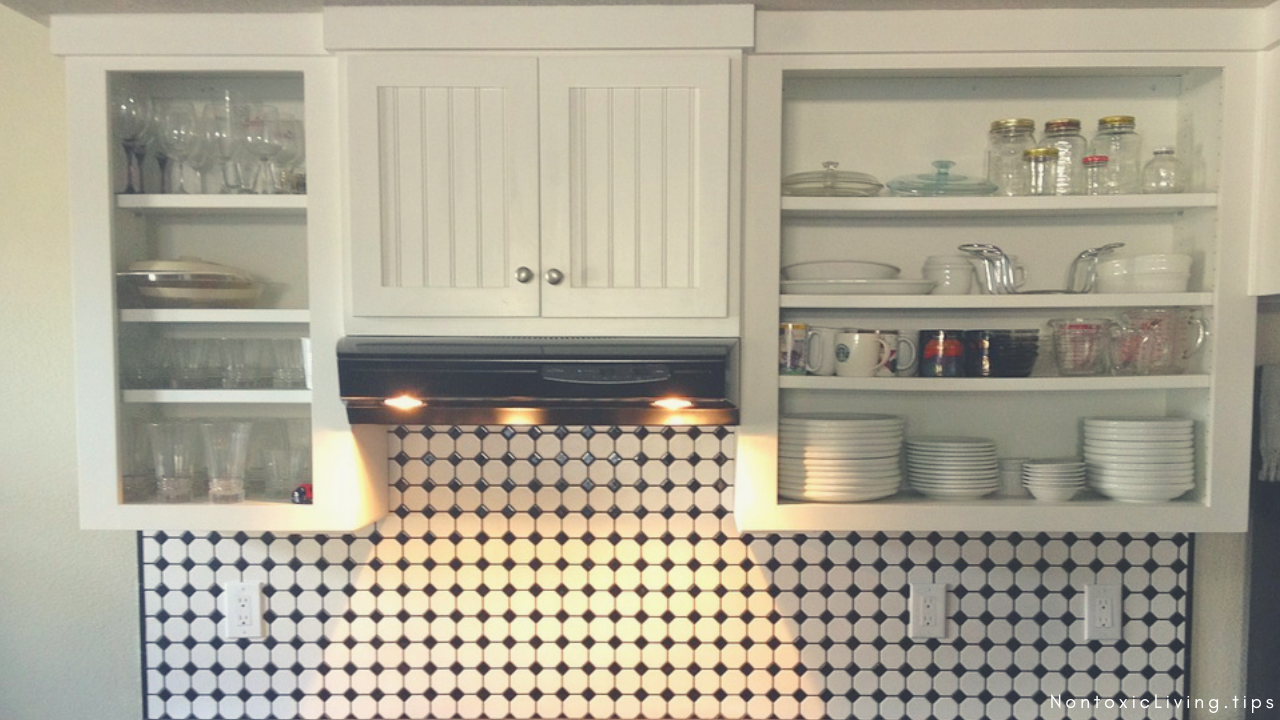
3 Nontoxic Cleaning Recipes for Kitchen Cabinets
Oct 07, 2018by Angela Cummings and Sophia Ruan Gushée
Kitchen cabinets accumulate grime and dirt from everyday use. Over time, wood surfaces and door knobs can develop a thick layer of grime. Not to mention stuck-on foods that splatter onto cabinet surfaces, or spills from food, milk, and juices that drip onto lower cabinets.
Keeping kitchen cabinets clean can help minimize bacteria and mold.
Health risks from a dirty kitchen cabinet
Mold can grow on spoiled foods, such as those dripped, splashed or transferred onto kitchen cabinet surfaces. According to the United States Department of Agriculture (USDA), if molds are on the surface of food, there are “root” threads running deep into the food.
Common types of molds on food include:
- Alternaria
- Aspergillus
- Botrytis
- Cladosporium
- Fusarium
- Geotrichum
- Monilia
- Manoscus
- Mortierella
- Mucor
- Neurospora
- Oidium
- Oosproa
- Penicillium
- Rhizopus
- Thamnidium
Other health dangers in the kitchen may include salmonella, shigella, and E. coli.
To clean mold and grime from kitchen cabinets, it’s common for people to reach for the bleach and conventional cleaners.
What are the harmful effects conventional cleaners can cause?
Conventional cleaners are often made with chemicals like chlorine, formaldehyde, pesticides, and phthalates. These chemicals can contribute to harmful health effects, like respiratory illnesses (asthma, difficulty breathing), cancer, hormone disruption, birth defects, and neurotoxicity.
Natural ways to clean kitchen cabinets
There are effective ways to clean kitchen cabinets without requiring toxic chemicals. The recipes below, from A to Z of D-Toxing: The Ultimate Guide to Reducing Our Toxic Exposures, allow natural, nontoxic cleaning of kitchen cabinets.
1. Vinegar + Hydrogen Peroxide
Supplies:
2 spray bottles
1 bottle 3% hydrogen peroxide
1 bottle undiluted white vinegar
Directions:
First, get to know the materials in your kitchen, especially ones you are about to experiment cleaning with. For example, natural stone (which few kitchen cabinets are made of) should be protected from acidic solutions, like vinegar. If your kitchen cabinet materials are safe with white vinegar and hydrogen peroxide, then you can proceed with step two.
Second, fill 1 spray bottle with 3% hydrogen peroxide. Fill the other spray bottle with undiluted white vinegar. First, spray the cabinet surface with hydrogen peroxide, then immediately after, spray the surface with the white vinegar. According to lab tests, this method kills salmonella, shigella, and E. coli just as well as harsher chemicals. Wipe clean.
Why it works:
Hydrogen peroxide is an antimicrobial and natural bleach.
White vinegar kills mold and bacteria.
2. Baking Soda + Water
Supplies:
1 mixing bowl
1 cup baking soda
water
cotton cloths
Directions:
Pour baking soda into mixing bowl. Add water very slowly, until baking soda becomes a thick paste. Scoop a tablespoon of paste onto the cotton cloth. Gently scrub kitchen cabinet grime away. Wipe clean with a damp cotton cloth.
Why it works:
Baking soda is known for cutting through grime, grease and lifting dirt.
3. Baking Soda + Castile Soap
Supplies:
1 mixing bowl
1 cup baking soda
1 bottle castile soap
water
cotton cloths
Directions:
Pour baking soda into a bowl. Add a few drops of castile soap. Slowly add water to the mixture until thick paste forms. Using a cotton cloth, spread the paste onto the cabinet surface and gently scrub the surface. Wipe clean with a damp cotton cloth.
Why it works:
Castile soap dissolves the oil of dirt and grime, releasing it from surfaces.
Baking soda cuts through grease, grime and lifts dirt from surfaces.
* Caution: Always test a small hidden area of cabinets before using to clean full cabinet surfaces.
Conclusion
Kitchen cabinets accumulate grime, grease, and spoiled food. This buildup can pose health risks from the bacteria and mold that can develop from the buildup.
Remember that conventional cleaners made of toxic chemicals are often not necessary. They can contribute to health concerns, like asthma, cancer, hormone disruption, birth defects, and neurotoxicity.
There are effective natural cleaners that can be used to clean surfaces with bacteria, mold, dirt, and grime. Research whether your kitchen cabinets can be safely cleaned with vinegar, hydrogen peroxide, castile soap and water. Similar to conventional cleaners, always test the recipe on a small hidden area of cabinets before using the nontoxic cleaner on the full cabinet surface.



